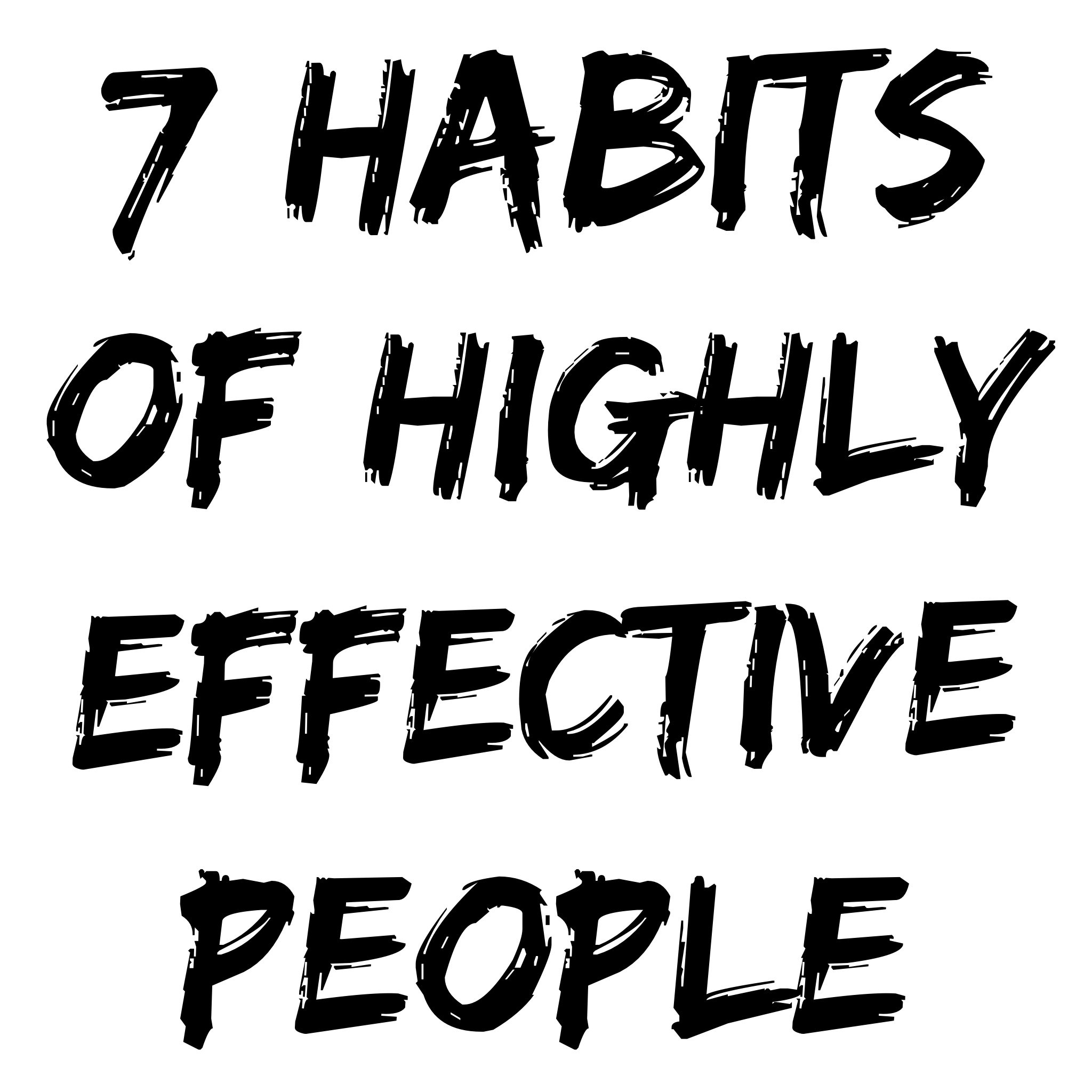Self Development and Communication—6 Ways to Elevate Your Life by Elevating Your Communication
“The best communication occurs when both people are sincere—one sincerely wishing to learn or listen, and the other sincerely wishing to share.”—Jim Rohn, Leading an Inspired Life
The fact that we have evolved as a human species to develop the concept of what we call communicationis nothing short of incredible when you stop to think about it. Verbal speech originated half a million years ago. Symbols came along approximately 30,000 years ago. Fast-forward to circa 2018, and here we are—communicating with one another across the globe, using technologies like the internet to connect with one another. Crazy, right?
A lot has happened between the very beginnings of communication, to where we are today…
We’ve got radio, audio, and video.
We’ve gone from symbols to Skype.
From facetime to FaceTime.
From chiseling text into stone, to tapping out text on the phone.
We have regular books, and we have audiobooks.
The article you’re reading right now is a form of communication.
We’ve even got satellites floating around in space right now, some billion light-years away, all in hopes of making contact—communication—with something we’ve never seen before.
These are all channels of communication that have dramatically transformed our way of life.
But in it’s most intimate form, communication happens with ourselves. The voice in our heads—telling us we’re not good enough, smart enough, or successful enough. Or that very same voice telling us that we aregood enough. That we aresmart enough. That we aresuccessful enough.
What exactly iscommunication? In short, communicationis the act of transferring information and ideas from one place to another place. And if we plan to live the most meaningful, successful, and fulfilling life we can, then it makes sense to learn to communicate as effectively as possible—both with ourselves as well as with others.
This is where self development comes in…
Self development and communication - 6 ways to level-up your life by leveling up your communication
Self development and communication are two areas of life that are inextricably connected to one another—you really can’t optimize one without the other.
- Let’s say you want to improve your health (self development). How will you do it? It starts with a clearly articulated health goal (communication).
- Let’s take another area of self development—relationships. Let’s say you want to improve your relationship with your significant other. How will you do it? You’ll need to start with communication.
- And how about your personal and professional goals? Clearly, goals are a big part of self development; but where did your goals come from? In order for a goal to bea goal, it needs to be clearly articulated and committed to paper—that’s communication. Even if the only person you communicate your goals to is yourself—it’s still important to communicate them clearly so that you know what you’re striving for.
Here’s what I’ve learned from studying this area for nearly a decade: Masters of life are masters of communication. You can’t have one without the other.
That said, here are a few communication strategies you can begin to implement immediately to help you improve your life, achieve your goals, and grow yourself in the process:
1. Words backed with emotion.
If I took a little straight pin and tossed it at your chest, it would bounce right off and drop to the floor. But if I took that same straight pin, positioned it onto your chest, then hit the opposite end with a hammer, it would pierce right through to your heart.
Your words are like pins. Your emotions are like hammers.
If you want to inspire yourself or anyone else in life, use words backed with emotion. It will change your life.
2. “I get to” vs “I have to”
How much of your day is spent doing things you have to do (as opposed to the things you get to do.) In my experience, the people who’ve built the most fulfilling + successful lifestyle for themselves are those that spend the majority of their time in the “I get to” zone … and this isn’t because they’ve gotten really good at delegating all of their “have to dos” (although it’s true to a certain extent) but because they’ve REDEFINED the way they perceive their lives.
They go from “I have to” to “I get to”
The idea here, is to speak in a manner that puts the responsibility squarely on YOU. Put yourself in charge. Give yourself control.
Of course, you don’t haveto do this… But if you chooseto do so, it’ll make a meaningful difference in your sense of wellbeing, self confidence, self control, and self development.
3. Inject examples into your communication.
It’s been said that if someone can’t explain something with simplicity, then they don’t understand it themselves. I agree. And I would also add: if someone can’t say something with examplesand simplicity, then they don’t understand it themselves.
For example, when I look at my most popular articles, podcasts, audio trainings and talks, the ones that resonate the most with people are the ones that contain examples.
Another example, at FlashBooks, we’ve got specific guidelines for all of our writers with regard to how to write our book summaries. And although I’ve got an awesome team of writers, sometimes they forget to follow the guidelines. So what do I do? Do I tell them to shorten their sentences and decrease the grammatical errors? No. I give them specific examples of what they did wrong, and exactly how they can do it better. You can do the same thing. Pepper more examples into your conversations and communications and you’ll visibly notice the light bulbs turning on in the minds of your listeners.
4. Eloquence is no substitute for intention.
Some people speak really well, but don’t saya lot. Maybe you’ve seen it—you watch someone speak with eloquence and elegance, but without conviction and intention. All filler; no killer. The delivery was polished, but did that communicateanything valuable?
When you communicate, communicate with intention. With your heart. When your intentions are in the right place, you can get away with a few stumbles and stammers because your audience—whether it’s an audience of 1 or 1,000—knows you’re not bullshitting them.
5. Communication is a skill.
Picasso produced 50,000 pieces of art before he died. Stephen King writes every single day, no matter what. Both men found out that the real secret to greatness was actually very simple: it was all about output; rinsing and repeating. That’s how they became great. That’s how they developed their skills. Effective communication works the same way: it’s a skill; it requires practice.
And no—practice won’tmake perfect.
There’s no such thing as perfect. Practice makes progress.
There are tons of ways to practice your communication. You can practice in your head. You can practice in your office. You can practice with other people. For a long time, I used to practice doing motivational speeches in front of a mirror. I also used to practice on video so that I could see if I was making any stupid gestures.
Of course, you don’t need to practice your communication skills while you’re ordering your lunch at the drive-thru or anything. But you do need to practice communicating when it counts: If your wedding vows are coming up, it’s probably a good idea to practice them a few times over so you don’t embarrass yourself on one of the most important days of your life. If you’re scheduled to deliver a lecture to a large group of people, you should practice. If you want to become a better salesperson, you need to look at every lost sale as a great opportunity to hone and practice your skills. If you’re a single guy/gal who wants to find your next “boo,” you need to practice your conversation skills.
The bottom line is this: remember Mr. Miagi’s advice: wax on, wax off. Practice your communication skills regularly.
6. Communicate for precision, not for ego.
Some people cover up their lack of knowledge by injecting big words into their communications and conversations with other people. I hear people do this all the time. And you probably have too.
Whether you’re writing or speaking or conversing—simplicity is key.
Don’t use a word like ‘ensconced’ when you could simply say, ‘comfortable.’
This isn’t to say that you shouldn’t use complicated language at all. My view is this: focus on precision. If there’s only one word to describe what you need to describe, then use it. Even if the difference is subtle, be precise in all your communications…
But remember: the goal in any communication is not to stroke your ego, but to take whatever it is that you’ve got in yourhead, and transfer it into the heads (and hearts) of whomever is listening to you.
Book recommendations:
There are tons of books on self development and communication. Here are three that I’ve found useful.
- Stand and Deliver by Dale Carnegie
- Leading an Inspired Life by Jim Rohn
- Nonviolent Communication by Marshall B. Rosenberg
Actionable insights:
If you want to achieve anything in your life, you must be capable of communicating it well. If you tee-up a bunch of fuzzy self development goals—maybeyou’ll hit them, maybe you won’t. But if you tee-up some specific goals that communicate exactly WHAT you’re after, WHYyou’re after it, and HOW you’ll get there—you’ll chances of hitting your goals go up dramatically. Start now by setting one well-communicated self development goal for yourself.
- Begin by identifying specifically WHAT you want:For example, if you want to enjoy financial freedom in your life, don’t just write down “make more money,” write down “I make $100,000 a month.”
- Next, identify WHY you want it:Why do you need that $100,000 a month? Do you want to re-invest to make even more money? Do you want to contribute to society? Build schools? How will this goal serve a higher need? It’s important to have some powerful reasons why you’d like to achieve a given goal. Because, to put it plainly, if you haven’t got reasons to take action, you won’t take action.
- Finally, figure out HOW you’ll achieve your goal(s):What’s your plan of action? Setting a goal to make $100,000 a month is incredibly daunting if you’re only making $1,000 a month right now. To achieve any big goal, you need to break that big bastard down into several smaller goals: three years from now, you’ll be making $100,000 a month. Two years from now, you’ll be at $50,000 a month. One year from now, you’ll be making $15,000 a month. Six months from now, you’ll be making $7,000 a month. Keep breaking it up until you’ve got it down to this month, then this week, and then this day. Once you’ve chunked your big goal down to several smaller goals, you’ll need to attach some proportionate actions to each of them and adjust you plans along the way.
- For more on goal-setting, read or listen to this next...
LIVE LIKE YOU GIVE A DAMN,
DEAN BOKHARI // Join 593,201 members of the Meaningful Movement »
Connect with Dean:
Subscribe to blog (it's free) | X: @deanbokhari | Facebook | LinkedIn
- If you find the podcast helpful, please rate + review it on Apple Podcasts »
- Got a Self-Improvement question you'd like me to cover? Submit it here »
"Dean Bokhari's Meaningful Show is the Self-Improvement Podcast I've been
waiting for. It's actionable, inspiring, and BS-Free."--Brett Silo
Search for more podcasts + articles...
freshly pressed:
Best-selling Self-development courses by Dean Bokhari
Top Audiobooks narrated by Dean Bokhari on audible
Book summaries
- The Power of Habit by Charles Duhigg
- 12 Rules for Life by Jordan B. Peterson
- Presence by Amy Cuddy
- Leaders Eat Last by Simon Sinek
- The ONE Thing by Gary Keller, Jay Pasan
- Deep Work by Cal Newport
Read or Listen to top Self-Help + Business Book Summaries in 20 Minutes or Less.
or
































